A joint cooperation protocol between the Faculty of Education and the Egyptian National Committee for Education, Science and Culture at UNESCO
Prof. Dr. Ayman Saleh, Vice President of Ain Shams University for Graduate Studies and Research Affairs, and Prof. Dr. Ghada Abdel Bary, Secretary-General of the Egyptian National Committee for Education, Science and Culture at UNESCO, signed a joint cooperation protocol between the two sides, in the presence of Prof. Dr. Hazem Rashid, Dean of the Faculty of Education, Prof. Dr. Rasha Kamal, Director of the Central Administration for Expatriates at the Ministry of Higher Education and Director of the Center for Educational Excellence at the Faculty of Education, Prof. Dr. Bushra Massad, professor at the Faculty of Girls, Dr. Sonia Mohamed, Assistant Professor, Faculty of Medicine, Prof. Nevin Schumann, Secretary of the Center for Educational Excellence.
The protocol aims to raise the efficiency of the educational process by implementing all international projects in the educational, social and psychological fields and programs for people with special needs, applying distinguished programs for preparing and developing teachers - faculty members as well as graduate students to participate in the preparation of training materials, participating in writing case studies and research Scientific and educational, in addition to participating in the organization of conferences, seminars and workshops.
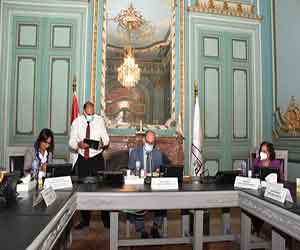 |
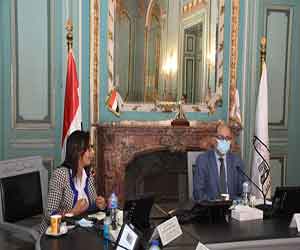 |
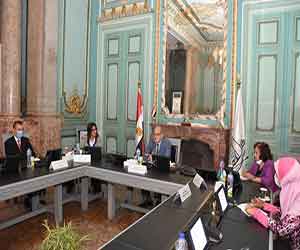 |
||
In his speech, Prof. Dr. Ayman Saleh, Vice President of Ain Shams University for Graduate Studies and Research Affairs, said that the university pays special attention to developing and improving the capacity of teachers, faculty members and students, as well as graduate students. Faculty of Education, Ain Shams University, and His Excellency referred to the role of the National Committee in the localization of technology in Egypt.
Prof. Dr. Ghada Abdel Bary, Secretary-General of the Egyptian National Committee for Education, Science and Culture at UNESCO, said that the committee seeks to be a distinguished source for providing information and monitoring national needs and priorities in the fields of education, science and culture, based on its possession of human competencies capable of motivating governmental and private institutions specialized in the fields of education, science and culture to ensure effective participation in the activities and work programs of the ALECSO, UNESCO and ISESCO organizations to contribute to the achievement of education, the dissemination of culture and human values, the preservation of heritage and the dissemination of knowledge to achieve development.
Also Prof. Dr. Ghada Abdel Bary, Secretary-General of the Egyptian National Committee for Education, Science and Culture, reviewed the idea of establishing the Education, Science and Culture Organization, noting that Egypt has been one of the founding countries of the organization since 1946, as Egypt's relationship with UNESCO began in 1959, when cooperation took place in the transfer of the Abu Simbel temple, noting that That there are 5 UNESCO chairs in Egypt, launched in 1992, programs and projects to enhance competitiveness in universities, in addition to 22 clubs, a number of centers such as the Adult Education Center in Sirs El Layan, reserves, 6 archaeological monuments and heritage sites such as Whale Valley, as well as interest in heritage and the Memory of the World Register.
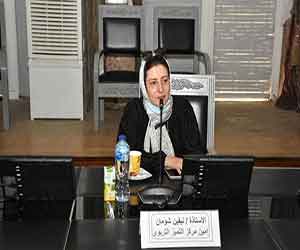 |
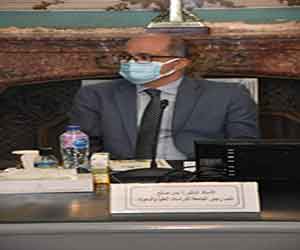 |
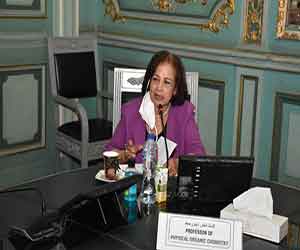 |
||
Also Dr. Bushra reviewed the role of UNESCO chairs in developing education in the Middle East since 1997, which resulted in the establishment of the National Council for E-Learning in 2004, the use of solar energy to generate electricity and the work of electronic marketing for New Valley products, in addition to providing educational services at the Faculty of Girls and introducing 6 courses, including scientific thinking Conservation of the environment and the philosophy of science.
Dr. Sonia Mohamed, Assistant Professor at the Faculty of Medicine, presented the details of UNESCO chair that she submitted on bioethics and scientific research, and added that a number of UNESCO chairs are being implemented in the faculties of Nursing and Pharmacy.
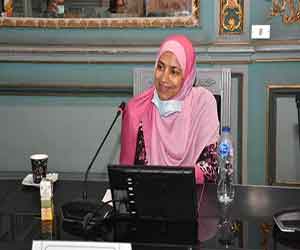 |
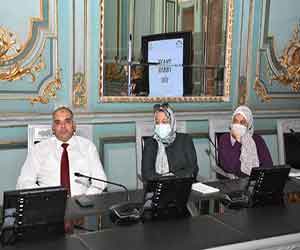 |
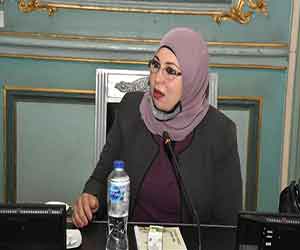 |
||


.svg)




